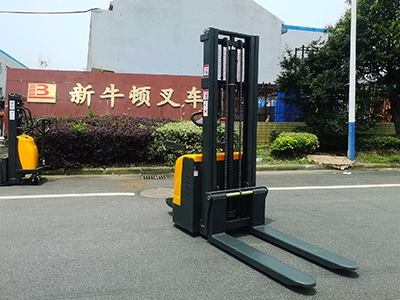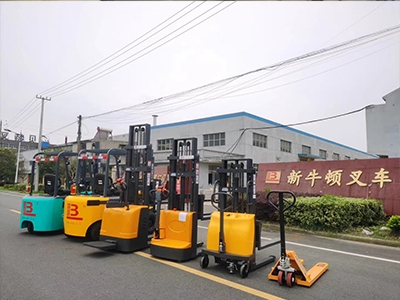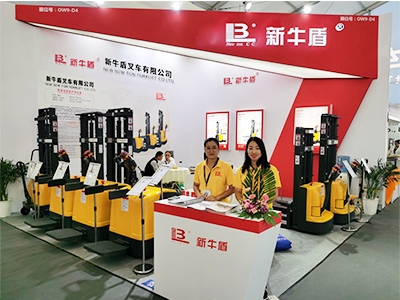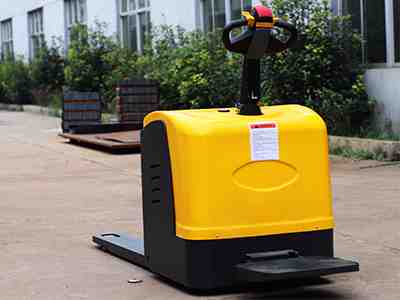Reconfirm that your electric forklift is used in the right place?

For indoor operations (including warehouses, workshops, etc.), in order to reduce air pollution and noise, electric forklifts are generally appropriate; for outdoor operations, especially when the on-site roads are not very flat, it is best to use internal combustion forklifts. Among the three types of internal combustion forklifts, diesel forklifts are commonly used. If there are no special requirements, diesel forklifts are generally used. A small number of northern users consider that the low temperature in winter makes it difficult to start the engine. They choose gasoline forklifts to facilitate the engine start. However, the use of direct injection diesel engines on forklifts solves the problem of difficult engine starting in winter. Therefore, the sales of gasoline forklifts in the domestic forklift market will decrease. In addition, with the country's restrictions on air pollution, environmental protection requirements are getting higher and higher, and more and more users choose electric forklifts for outdoor operations, which will become a development trend.

Among the three transmission modes of internal combustion forklifts, the most popular domestic users are mechanically driven forklifts and hydraulically driven forklifts. Due to high prices, high maintenance requirements, difficult troubleshooting, and high maintenance costs, ordinary users generally use hydrostatic drive forklifts. Generally, when the work is not continuous and the daily working time is not long (within 5h), the mechanically driven forklift can meet the requirements of use. For continuous work, frequent work, heavy load, two-shift and three-shift production, in order to improve work efficiency and reduce the labor intensity of forklift drivers, it is generally best to use hydraulically driven forklifts. With the improvement of the reliability of hydraulically driven forklifts, more and more users will choose electric hydraulic forklifts due to its advantages such as stepless speed change, labor-saving and convenient operation, and high work efficiency. Another point of the electric forklift is that you can replace the spare battery at any time. Some electric forklifts are equipped with a side-pull battery compartment, and a set of batteries can be pulled out when the power is low and replaced with a new fully charged battery.

At present, some major domestic forklift companies are equipped with a variety of domestic and imported engines for users to choose from to meet the different needs of users. These engines are not only the difference between domestic and imported, but also the size of the engine power. For general users, forklifts with domestic engines can be used, which is cheaper and more convenient for maintenance services. For users with heavy workload and long working hours, imported engines can be used to reduce the failure rate and improve reliability. For users with particularly heavy working conditions and harsh working environment, it is recommended to use high-power imported engines.
Electric forklifts are mainly used for indoor operations. Generally, counterbalanced battery forklifts are used, including three pivots and four pivots. For users with narrow aisles and stacking goods above shelves, or users who need to enter the elevator to work on the upper floor, you can choose a forward-moving electric forklift or a stand-on all-electric stacker.

The rated lifting capacity of each electric forklift refers to the weight of the cargo's center of gravity within the standard load center distance of the forklift, the forklift mast is vertical, and the standard lifting height of the forklift (my country's standard lifting height is designated as 3000mm). Therefore, when selecting the tonnage of the forklift, the user should compare the center of gravity of loading and unloading goods with the standard load center of the forklift. If the center of gravity of the cargo is equal to or less than the standard load center distance of the forklift, the rated lifting capacity of the selected forklift is equal to or approximately greater than the cargo. If the center of gravity of the goods is greater than the standard load center distance of the forklift, the tonnage of the forklift should be determined according to the forklift load curve provided in the forklift catalog.
In addition to standard electric forklifts, there are also special container forklifts for container operations, container forklifts for sub-container operations (2~5t), empty container stacking forklifts (7-10t) and full container loading and unloading container forklifts (20~42t). Users can follow Container operating conditions are selected. For loading and unloading inflammable and explosive materials or working in an environment containing explosive gas, an explosion-proof special forklift can be used. Explosion-proof forklifts are divided into internal combustion explosion-proof forklifts and explosion-proof electric forklifts. Explosion-proof electric forklifts are generally used for indoor operations, and internal combustion explosion-proof forklifts can be used for outdoor operations. In addition, cross-country forklifts can be used for field operations on uneven or sparse and soft roads.
The corresponding forklift must be used in the correct place. Never use it casually. It must be done with safety first.
评论
发表评论